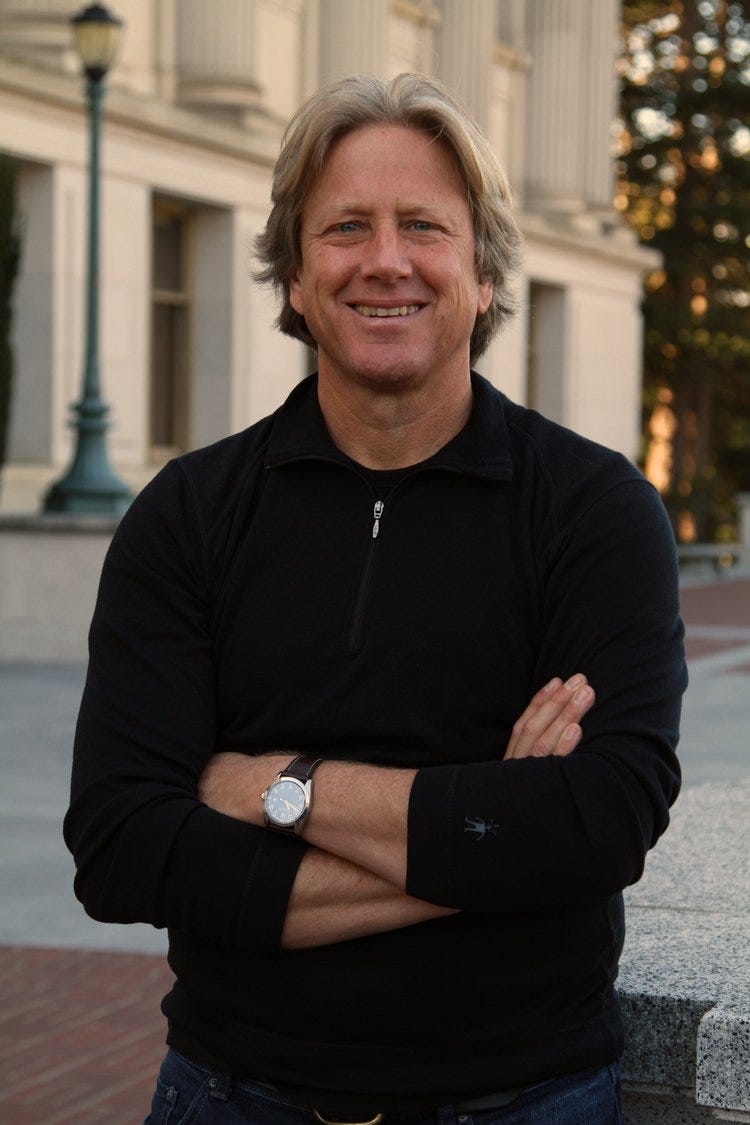My new walking hat.
In this issue:
· Turning Insights Into Practices: Goals and No Goals
· My favorite quote this week: Seed Luck
· What I'm read this week: Nine Gates
· Zen Bones Podcast: Awe, with Dacher Keltner
Turning Insights Into Practices: Goals and No Goals
Having large goals is something most people agree with, but not practiced as much as you might think. Less understood is the importance of having no goals.
Goals: You might be familiar with a study about goals that was done with lumberjacks. Some teams were directed to work fast and smart. Others were given specific goals to meet. There were no financial rewards assigned to either group. The teams that had goals outperformed those that did not, usually by 10 - 25 percent. Many other studies have showed that have goals supports productivity not just for lumberjacks but for nearly any field where productivity can be measured. Studies have also shown the importance of clear, large, and attainable goals.
The power of goal setting is related to the way that our brains act. Our brains effortlessly predict the future. By having clear goals we can align and leverage our innate ability to align our goals and predictions of the future with our actual performance.
In work and business, it's always good to have financial goals and projections. Do you have these, month by month for the next 6 - 12 months?
I also like to set goals about my personal and professional development. As an executive coach, this can be easier for me to do with others than for myself. These include categories having to do with exercise, diet, sleep, study, meditation practice, and cultivating relationships. Explore setting personal and professional goals.
Even as a mindfulness teacher, I'm a firm believer in having ambitious goals, especially when it comes to solving real problems. I hope that we will ambitiously look for ways to shift climate change, violence, and poverty. It's also powerful to have goals about becoming more aware and supporting others.
In our work lives and personal lives, goals and aspirations are important. I think about my teacher Harry Roberts who used to say that being human is easy. We just need to ask and answer three questions: 1) What do you want; 2) What do you have to do to get it; and 3) Are you willing to pay the price. So, in your relationships, work, and life -- what do you want? There is something powerful about just asking the question.
No Goals - While goals are important, I'm a firm believer in the practice of letting go of our goals. Though we may aspire to predict the future, we can't. We have to be able to respond and thrive in an uncertain, unpredictable world. This means being flexible and resilient, responding and improvising as conditions change, as people change, situations change, and probably most of all - we change.
The practice of letting go of goals and expectations is a core part of meditation and mindfulness practice. With each exhale, explore letting go of expecting anything. See what it feels like to become more familiar and comfortable with not knowing what will happen. This is one of the practices that I've appreciated about improv theatre -- practicing letting go of predicting and instead being more responsive. And, I found this to be an essential practice in my daily life.
If you look at where you live, what you do, and what your life is like, I suspect you will it looks very different than any goals you might have set. You've had to create your life and your world, moment to moment. I did. I didn't grow up thinking I'd be a mindfulness teacher and business guy, living in California. Who knew?
So, goals or no goals? Clearly the answer is, yes! Our work is to be clear, decisive, working with a sense of urgency, as well as relaxed, open, resilient, and responsive. Lots of clarity and perseverance. Lots of letting go.
My Favorite Quote This Week:
Ways to get lucky:
- Hope luck finds you.
- Hustle until you stumble into it.
- Prepare the mind and be sensitive
- Become the best at what you do. Allow luck to find you
From The Almanack of Naval Ravikant
Worthwhile and interesting to reflect on luck, and especially how to seed luck.
What I'm Reading This Week
I'm re-reading Nine Gates, Entering the Mind of Poetry, by Jane Hirshfield. It's a beautiful and deep collections of essays on the art and craft of writing and reading poetry. The preface begins with these words: "Poetry's work is the clarification and magnification of being."
Zen Bones Podcast - In this episode I have a conversation with Dacher Keltner, director of the Greater Good Science Center at U.C. Berkley. We unpack the power of awe - seeing the world fresh and new and how it can benefit our well being, our relationships, and help heal the rifts in our culture. Dacher tells heartfelt personal stories about his own life and the role of awe. We touch on the relationship of mindfulness and awe at work and leadership and in all parts of our lives.







